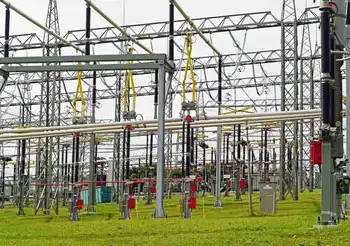Complaints Against Utilities Fell Again In 2004
CONNECTICUT - Total consumer complaints filed with utility regulators against utility companies dropped for a third year in a row in Connecticut, although they rose for some individual companies and for some utility sectors.
Total complaints fell almost 8 percent in 2004, according to the annual consumer scorecard issued Thursday by the state Department of Public Utility Control.
Sizable decreases in complaints against electric and telecom companies accounted for the overall decline, even as complaints against natural gas companies rose nearly 26 percent, water company complaints increased 12 percent and cable company complaints edged up 4 percent.
Beryl Lyons, spokeswoman for the DPUC, said the number of complaints fluctuates from year to year depending on what is happening in various utility industries across the state.
Regulators rate each company based on the number of complaints per 100,000 customers.
Three years of complaint declines show the companies are trying to address the problems consumers bring to the department, Lyons said. Many of the complaints are related to billing, especially if costs rise and customers cannot pay the higher bills.
"If the economy is not good, there are problems making [payment] arrangements," Lyons said.
Higher prices may have been a factor in the nearly 26 percent increase in complaints against natural gas companies last year, gas industry officials said.
Complaints against natural gas companies increased by nearly 100 - - from 374 in 2003 to 470 last year -- driven by a rise in complaints about Connecticut Natural Gas and Southern Connecticut Gas. Complaints about Yankee Gas, the state's largest gas distribution company, decreased.
John Dobos, spokesman for both CNG and SCG, said the extreme cold weather in January 2004 pushed up customer bills and prompted a larger number of delinquencies. The company had to be more aggressive in collecting its money.
"We saw a rise in our complaint level at that point," he said.
Yankee Gas spokeswoman Sandy St. Pierre said her company's complaints numbers are within the limits set by state utility regulators. Even though the number of complaints decreased by about 8 percent, the company's complaint record is still behind the other two gas companies.
"It's still not acceptable, and we're working hard to bring those numbers down," she said.
In the water sector, Adrienne Vaughan, spokeswoman for Aquarion Water Co., which has 174,000 customers in Connecticut, said most of the 66 complaints against the company were billing-related.
The company is working to increase meter-reading efficiency and improve communication with customers on service issues, she said. She also said Aquarion has retrained its customer service staff to minimize complaints and resolve them faster, during the first contact with a customer.
In the electricity category, the number of complaints fell nearly 20 percent to 1,109, down from 1,385 in 2003. The number of telecommunications complaints decreased about 12 percent to 1,194.
Consumers may see the ratings for their utility companies at www.state.ct.us/DPUC/. Click on "News and Events," then "news releases," then "(3/17/05)."
Related News

How Should California Wind Down Its Fossil Fuel Industry?
LOS ANGELES - California’s energy past is on a collision course with its future. Think of major oil-producing U.S. states, and Texas, Alaska or North Dakota probably come to mind. Although its position relative to other states has been falling for 20 years, California remains the seventh-largest oil-producing state, with 162 million barrels of crude coming up in 2018, translating to tax revenue and jobs.
At the same time, California leads the nation in solar rooftops and electric vehicles on the road by a wide margin and ranking fifth in installed wind capacity. Clean energy is the state’s future. By law,…




